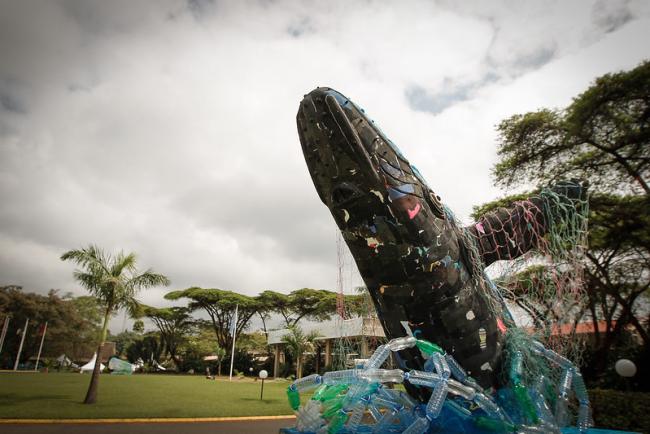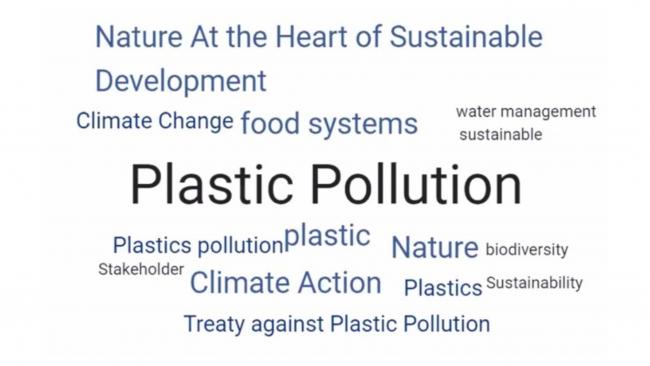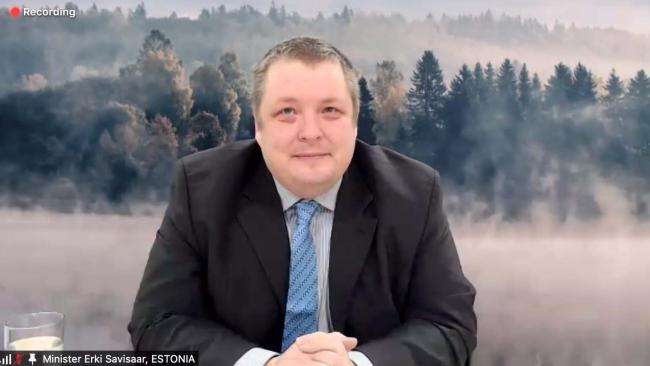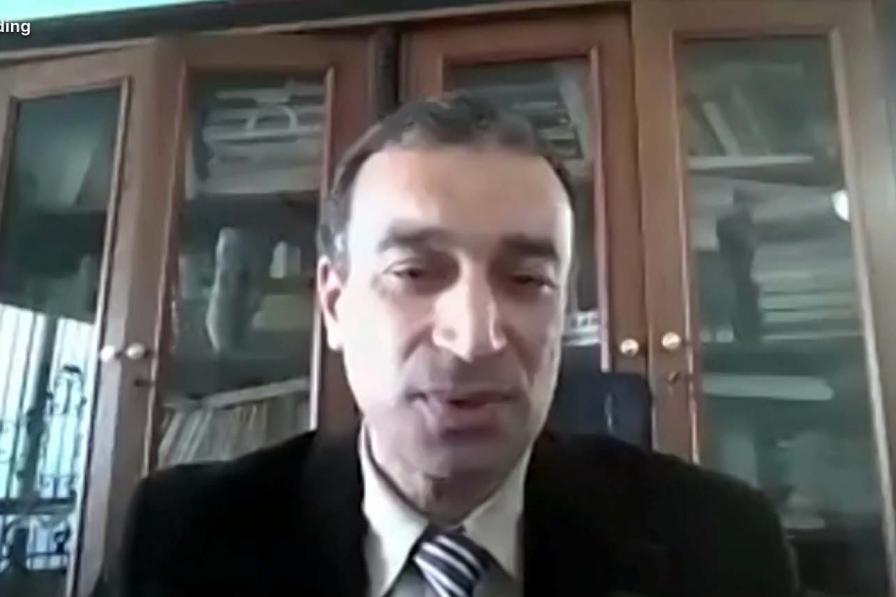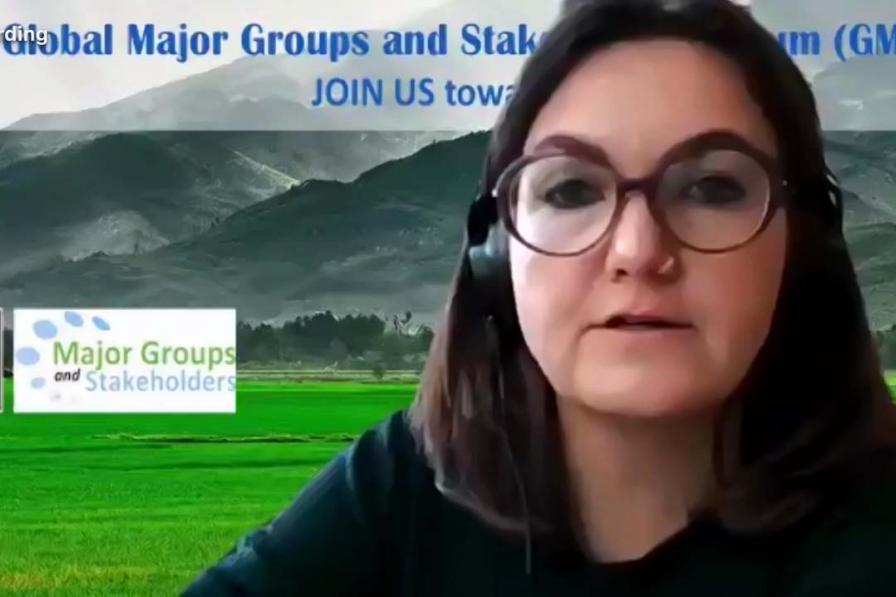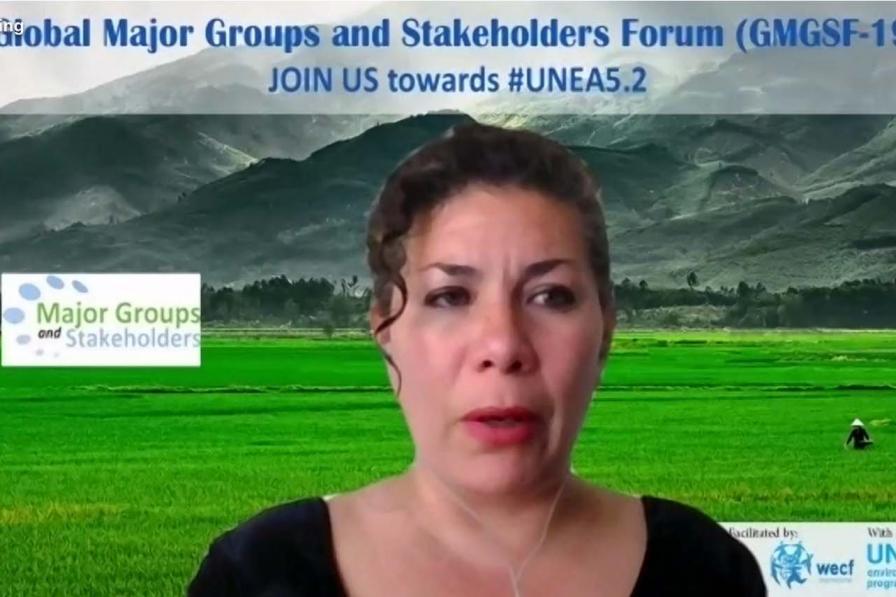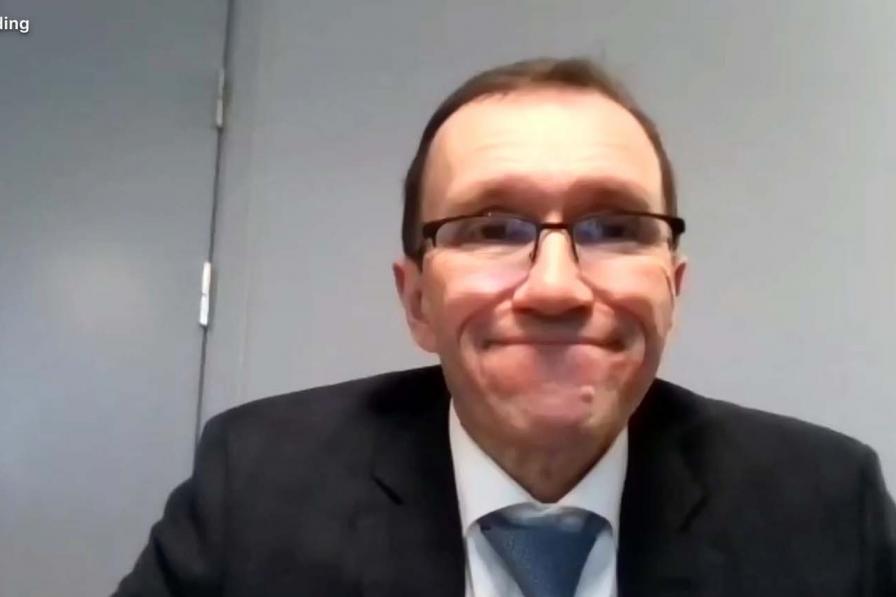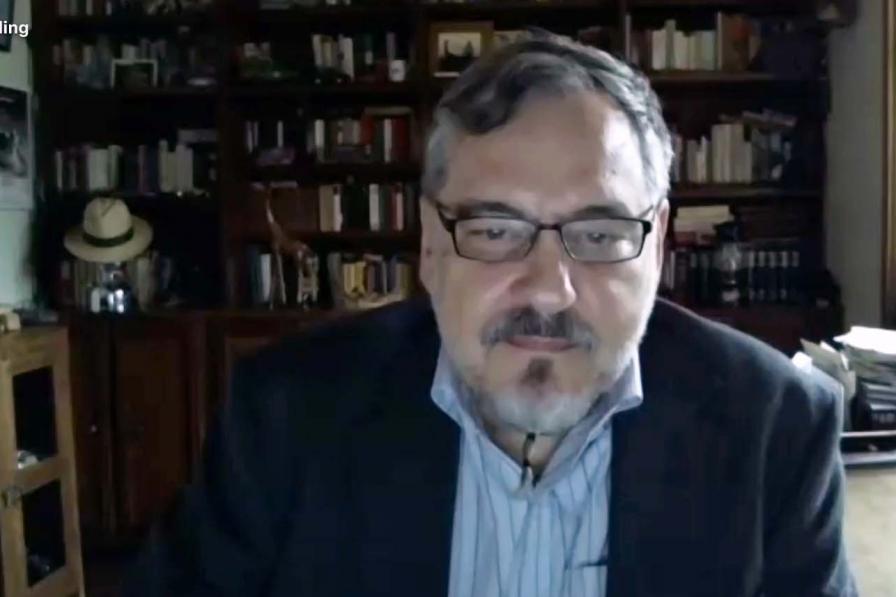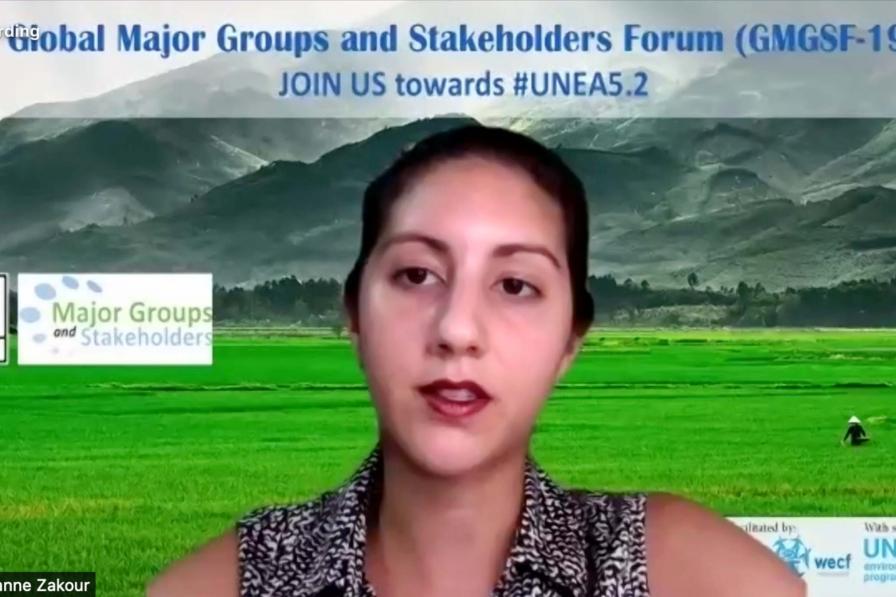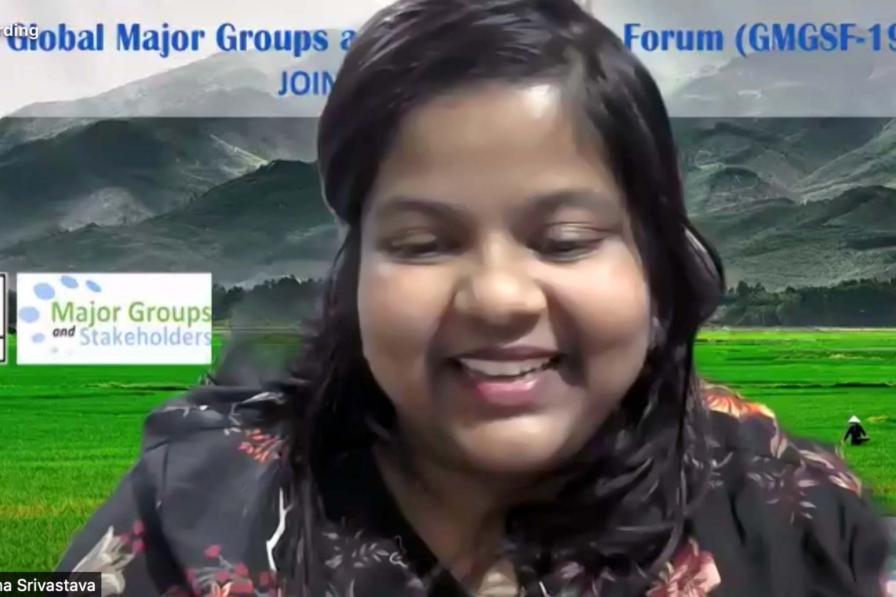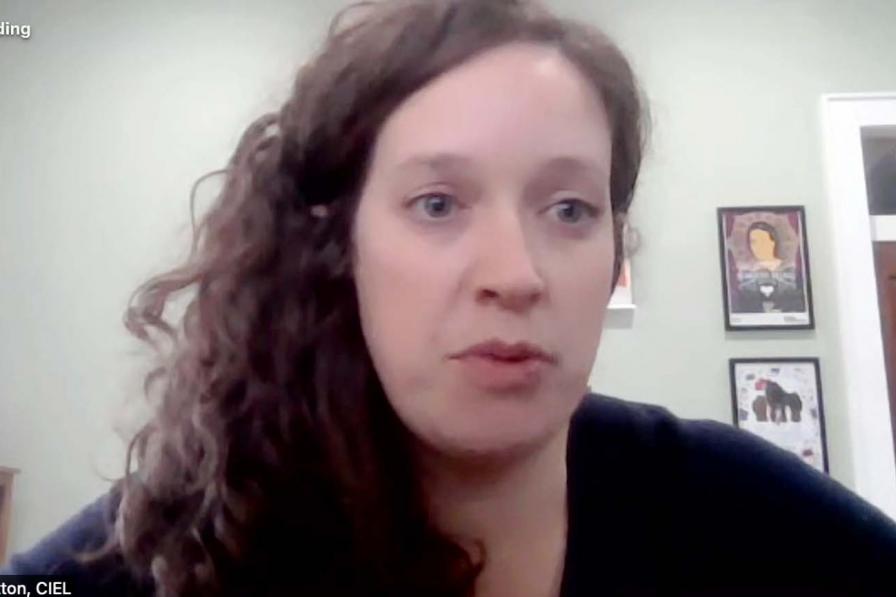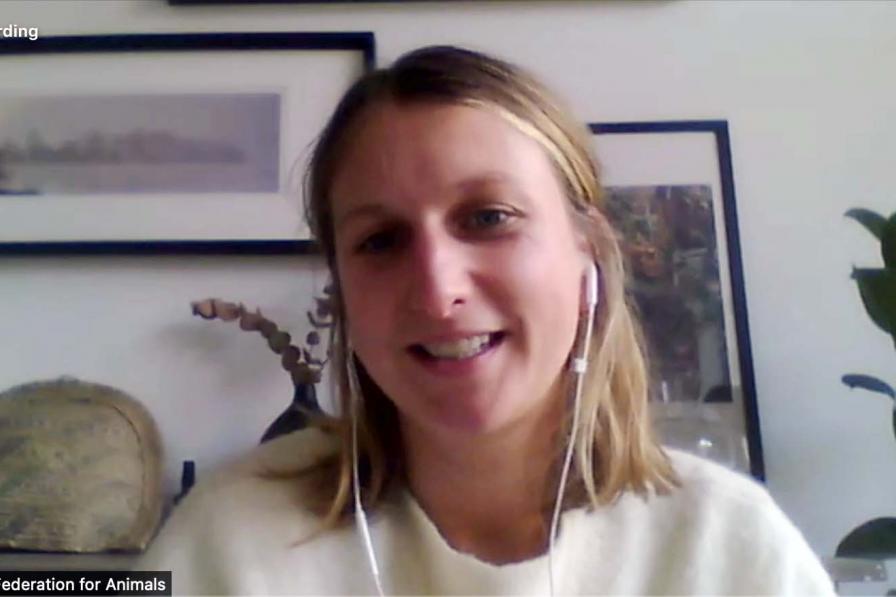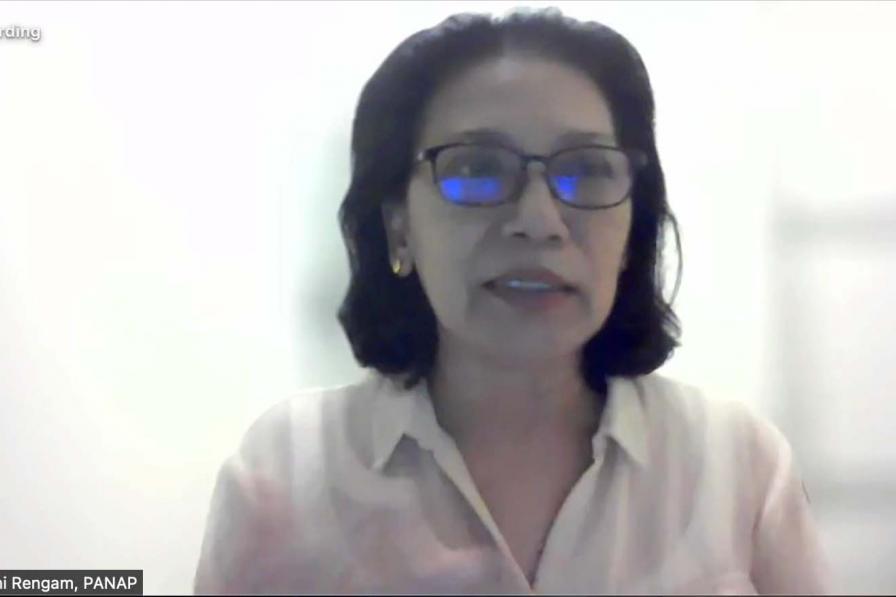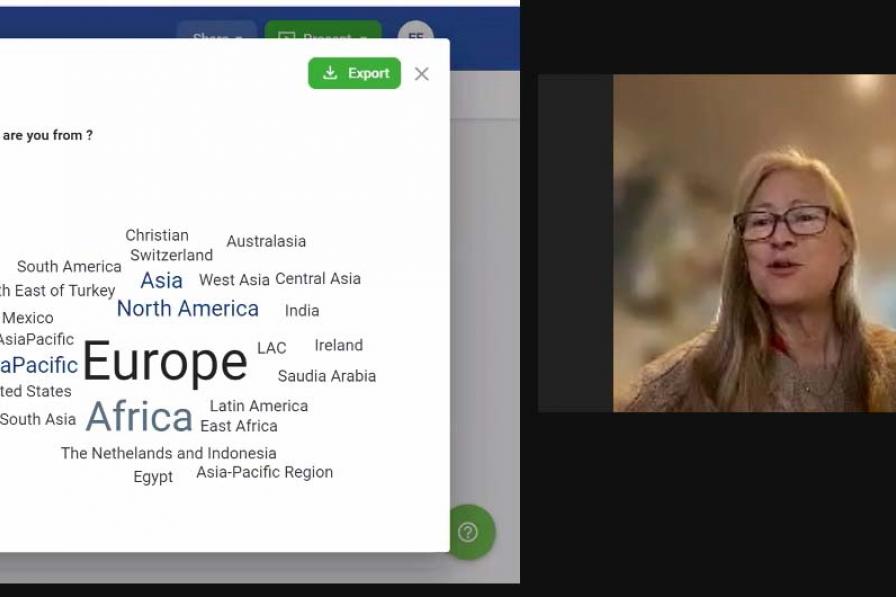The 19th session of the Global Major Groups and Stakeholders Forum (GMGSF-19) of the resumed fifth session of the UN Environment Assembly (UNEA-5.2) opened on Monday afternoon with introductory remarks by the three Co-Chairs of the Major Groups Facilitation Committee: Ingrid Rostad, NGO Major Group; Mohamed Abdelraouf, Science and Technology Major Group; and Carmen Capriles, Women’s Major Group.
During a virtual introductory round, participants took part in a quick poll of issues they consider to be most important for the UNEA-5.2 agenda, with plastic pollution garnering the highest number of votes.
In welcoming remarks, Espen Barth Eide, UNEA President and Minister of Climate and Environment, Norway, noted the integral role that different civil society sectors play in international negotiations. He stressed that plastic pollution is an issue that transcends borders, thus calling for a collective response through a global treaty. He also looked forward to seeing a solid proposal for a scientific panel for collecting information on chemicals, waste, and pollution.
Erki Savisaar, UNEA Vice President and Minister of the Environment, Estonia, echoed the call for establishing a negotiating process towards a legally-binding, global agreement on plastic pollution, noting that it must clearly state the scope of work, include micro plastics, and embrace a circular approach.
Alexander Juras, Chief, Civil Society Unit, UNEP, highlighted the increasing viability, as well as the environmental sustainability of online meetings. He noted that this GMGSF session had almost 800 registered participants, offering an opportunity to bring a strong MGS voice to a political declaration on UNEP@50.
Ulf Björnholm, Deputy Secretary for Governing Bodies, UNEP, shared expectations for the upcoming UNEA-5.2 sessions. He highlighted that some of the 17 resolutions currently on the table may be merged. He noted the Open-Ended Committee of Permanent Representatives (OECPR) would prepare three categories of draft resolutions for consideration at UNEA-5: agreed resolutions recommend for adoption; resolutions with pending issues recommended for further consideration; and those requiring further action, with the possibility of consideration at UNEA-6 or in another forum.
GMGSF participants then previewed key issues to be discussed in working sessions starting on Tuesday that will prepare MGS input to the upcoming negotiations. The discussions were structured around the five thematic clusters to be considered at UNEA-5.2: plastic pollution; biodiversity and nature-based solutions; chemicals; green recovery and circular economy; and procedural matters. The session also introduced draft texts on Ministerial and Political Declarations that are expected to be the key outcomes of UNEA5.2 and UNEP@50 sessions respectively. Among other topics, speakers highlighted the importance of:
- bridging gaps in understanding on issues relating to environmental governance, socio-economic impacts, and health threats posed by environmental crises;
- coherent and integrated approaches that bring social dimensions into environmental work, while also addressing issues of poverty eradication and prosperity for all;
- formulating strong MGS messages on the chemicals and pollution clusters;
- streamlining the joint MGS statements on UNEP@50 and Stockholm+50; and
- strengthening follow up to UN General Assembly resolution 73/333 on environmental governance through a focus on improved coordination of multilateral environmental agreements, financing and enforcement, and MGS capacity building for more effective monitoring.
To receive free coverage of global environmental events delivered to your inbox, subscribe to the ENB Update newsletter.

